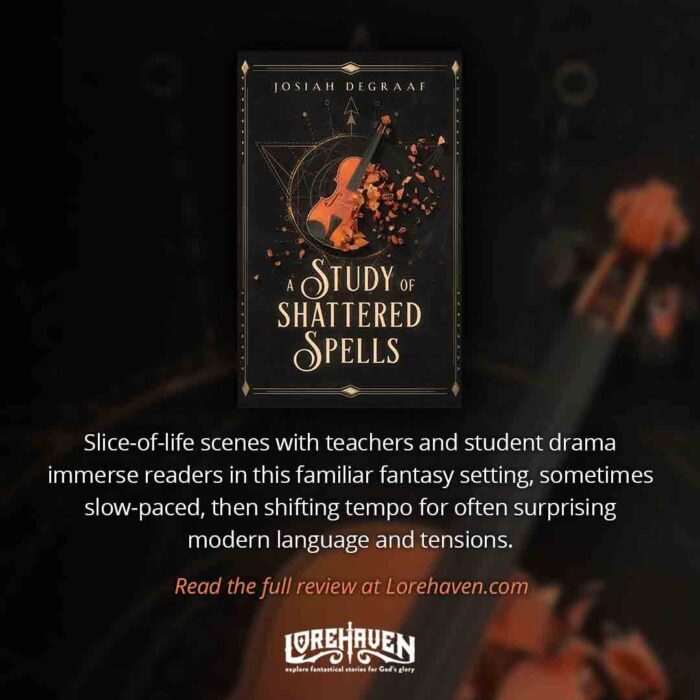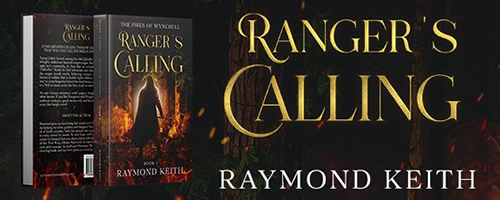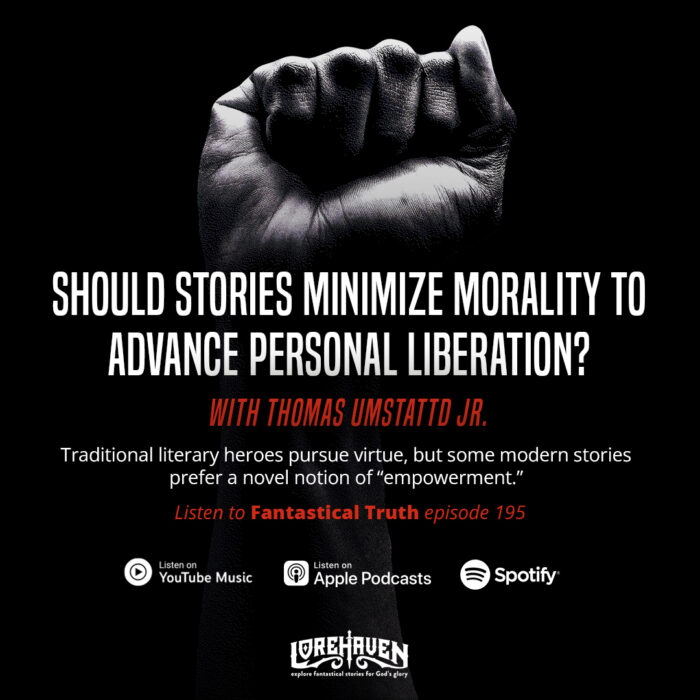195. Should Stories Minimize Morality to Advance Personal Liberation? | with Thomas Umstattd Jr.
Podcast: Play in new window | Download (Duration: 1:17:20 — 72.1MB) | Embed
Once upon a time, more literary heroes pursued virtue, or at least knew that they should.1 But in more modern stories, main characters aren’t motivated by being good, but by being right. They exchange the truth and Law of God for the lie of “personal liberation.” In a world of abuse and tyrants, this can feel appealing. Yet how does this exchange ultimately make stories worse?
Episode sponsors
- Oasis Audio: “1232” epic audio podcast
- The Culling Begins by Anthony DeGroot
- I. W.R.I.T.E.: How to Write a Novel course
Mission update
- Watch for two new Onscreen articles this week:
- Subscribe free to get updates and join the Lorehaven Guild
 Reintroducing guest Thomas Umstattd Jr.
Reintroducing guest Thomas Umstattd Jr.
Thomas Umstattd Jr. built his first website at age thirteen and taught his first web design class at only age 16. Since 2009, his websites and resources have helped support authors. In 2014, Thomas has been marketing director for Enclave Publishing, and in 2015 Thomas became an author himself, publishing the nonfiction book Courtship in Crisis. As a podcaster, he hosts the Novel Marketing Podcast, and the Christian Publishing Show. Thomas still serves as the CEO of Castle Media Group, parent company of Author Media. He lives in Austin, Texas with his beautiful wife and children.
Concession stand
- We may speak of broader cultural terms to add context to the topic.
- But many readers resonate with these themes because of backstory.
- For more background, check into our Fantastical Foes series last year.
- Definitely see our episodes about church trauma and Sentimentalism.
Key excerpt from Thomas’s recent article at SteveLaube.com:
An amoral concept has infected Hollywood screenplays and Christian books alike. Some people call it clinicalism, and others call it clinical pluralism. Clinical pluralism is the belief that there is no right or wrong. There is no such thing as evil; there is only trauma. In stories where clinical pluralism is the overarching moral system, villains don’t do evil because they are evil. They do evil because they suffered trauma in the past.
Clinical pluralism is sometimes connected with a Marxist oppressor/oppressed worldview where oppressors are evil, and the oppressed are good. Marxism is an anti-Christian worldview. In Christianity, there are no oppressors or oppressed, slave or free, Jew or Gentile (Galatians 3:28). There are only wretched sinners in need of a Savior. The slave needs salvation as much as his master. The oppressed need a Savior as much as the oppressors do. Being oppressed doesn’t move you one inch closer to the Kingdom, and being an oppressor doesn’t disqualify you from the love of Christ.
Not only is amoral storytelling unchristian, but it is also boring and preachy. We live in a broken world. Everyone experiences trauma. When taken to its logical extreme, amoral storytelling causes villains and heroes to become indistinguishable.
—The Key Ingredient for Timeless Christian Storytelling: Morality, Thomas Umstattd Jr., The Steve Laube Agency, Jan. 9, 2024
1. Classic stories were centered on moral virtue
- Most of these dealt with their heroes’ specific sin struggles.
- Consider the fairy tales that often pushed morality to a fault.
- In C. S. Lewis’s Narnia, the children often sin and must repent.
2. But many modern stories promote ‘liberation’
- How do we see this theme reflected in newer fantastical stories?
- “Discover who you really are by throwing off the shackles of your past to unleash your power.”
- For example, Thomas compares Captain Marvel (2018) to Iron Man (2008).
- We also compare Captain Marvel (the character) to Black Widow’s struggles.
- These “liberation” ideas are being laundered through fiction and pop culture.
- Jesus, however, told us to “be on your guard against all kinds of greed.”
- This “personal liberation” worldview is fundamentally built on envy.
- Even some Christian-made fiction can fall into this “toxic empathy” trap.
- Jesus also told us to watch out for false teachers within the church.
- This can get uncomfortable. We first have to take the planks out of our own eyes.
- Yet many writers praised Thomas’s article and said they will apply this encouragement.
3. Better stories are returning to classic virtues
- Manga is taking bookstores by storm. That’s because because Japanese storytellers know good fiction requires transcendent meaning.
- Full Metal Alchemist: Brotherhood directly portrays the “seven deadly sins”
- Demon Slayer shows a Christ-like hero fighting evil spiritual forces
- One Piece tells the tale of a pirate captain who may unite the world
- Spy Family celebrates a totally trad family involved in espionage
- Several Christian-made novels feature characters who experience immense trauma, yet find healing and a higher purpose, such as:
- LitRPG, a fast-growing genre, is praised by readers who embrace clear pictures of actions and consequences.
Com station
- Have you seen a story that tried to manipulate you into supporting the immoral choices of main characters?
Gretchen E K Engel wrote about episode 194:
My favorite movie was a literal 11th hour pick. My husband, son, and I saw Wonka on New Year’s Eve. Fantastic and fantastical! It’s closer to the 1970 film and musical perfection! This is a movie I’d watch again!
By the way, this is the best way to celebrate NYE. Go to the movies and land at home before midnight.
My son loves the Sony Spiderverse movies, and it might be his favorite of 2023. I enjoyed the first one and want to see this one. It’s also an example of good diversity casting that as Zach says, respects the fandom.
As a quintessential GenXer, Sean Astin is always Mikey from The Goonies.
Mon Mothma was my absolute favorite character in Andor and one of my favorite characters, period. A woman in leadership but also a wife and mother resonated with me.
Next on Fantastical Truth
You all love great stories. But how do fantastical books get made? Who takes all that raw material, polishes the edges, and turns the story into a shining jewel? We’ll explore this magical process, the making of fantastical novels from within and without, with Jamie Foley, indie fantasy author and creative director of Enclave Publishing.


































This podcast episode reminds me of a video I saw a few years ago. It was a review of a movie called Wolfwalkers. I haven’t seen Wolfwalkers, but from what I understand Wolfwalkers are people that can turn into wolves, and they face prejudice from people that want to wipe them out.
I wouldn’t go so far as to call the author of the review woke, but from what I’ve seen of her videos she is a more Left leaning SJW. During the review, she and the person she made the review with basically described the villain as boring and flat — a run off the mill ‘staunch Christian colonizer man’. The reviewer named this as a plus, however. She admired this approach because there was no ‘both sidesing it’ in the movie. The villain was bad and wrong and there was nothing to discuss beyond that. Essentially, the reviewer had her moral stance on the issue, and she isn’t really that interested in discussing nuance, gray areas or why someone might disagree with her.
Obviously it’s wrong for someone to take over another group’s land and force a different belief system down their throats, so she is correct in pointing that out. And it’s ok for stories to take a simplistic moral view sometimes. Every author has a different approach when it comes to handling moral complexity in stories, and that’s a good thing. But the reviewer’s words sort of encouraged the listeners to avoid thinking more deeply on this social issue, and that can be pretty dangerous. Deciding that another group of people is unquestioningly bad and to be fought at all costs sounds like the same mindset that the Wolfwalkers villain had, after all.
All that to say…although there are areas where modern and ‘woke’ stories might muddy the waters of morality sometimes, many of them are steadily moving AWAY from understanding and nuance in favor of painting everything as a black and white moral issue. They often call for clear moral boundaries to be drawn, just like you advocated for in the podcast, but their moral stances are different, so they will depict a different set of people as the bad guys. And they are so firm and moralistic in their stances that it is very difficult to show them that they might be wrong about something. The comments sections for various movies, Youtube videos, webcomics, etc, show that there is no shortage of people with firm moral sensibilities. And they are quick to call out behavior that they consider bad. But they are imperfect human beings, just like everyone else, so their moral judgements are often wrong, or they act upon their moral sensibilities in the wrong way.
So I don’t think the issue is muddy moral waters. In many ways it’s the opposite, and we are swiftly moving toward a society that is so sure of its moral stance and so desperate to enforce it that it seeks to shut down anything that disagrees.
It’s also worth noting that exploring a character’s ‘trauma’ and reasoning does not mean that the author is trying to muddy the waters or justify that character’s behavior. The author may just be trying to illustrate why people make certain choices, explore a moral issue, or show the story from the character’s perspective. People tend to be the heroes of their own stories, after all. So if a character is immoral, a story will show how that immoral person justifies his behavior. Illustrating human nature is an important function of story telling, because when we understand how people think, we have more information we can use to avoid making the same mistakes the characters did. So we need to be careful when declaring that a story/author is amoral. Authors will sometimes put very good morals in their stories, but they don’t spell it out for the audience, and so the morals may not be readily apparent at first.